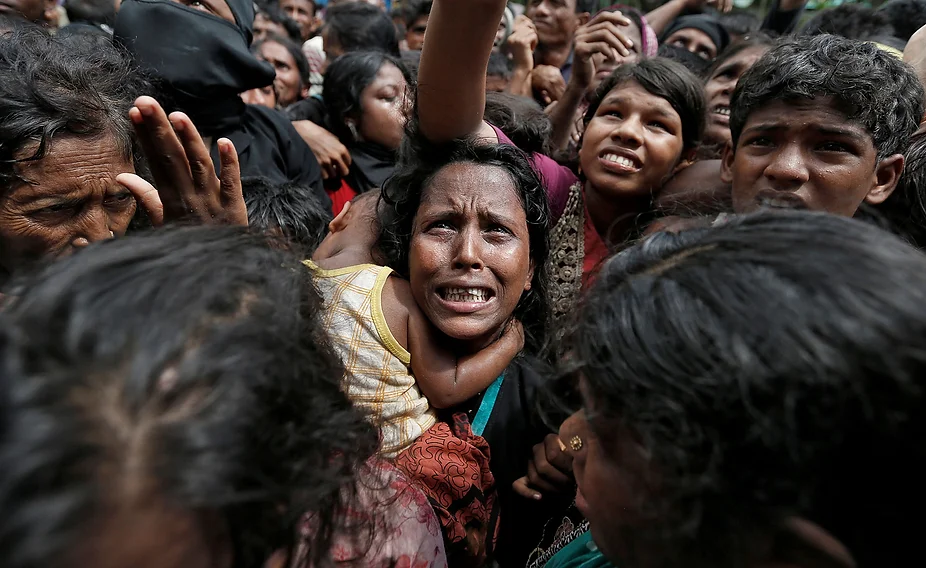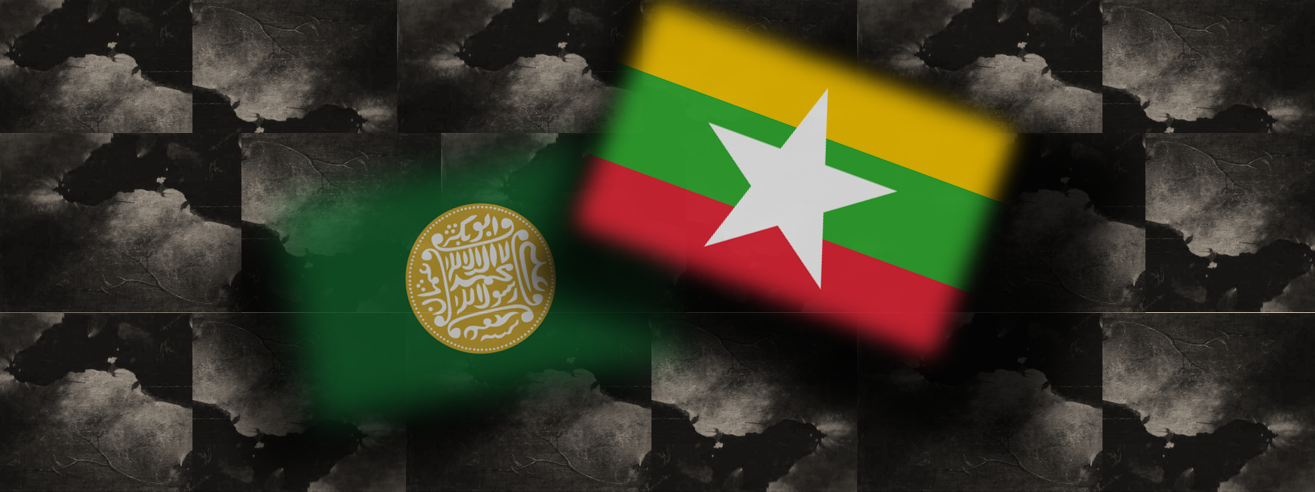On April 30, 2020, Facebook took down a network of pages and accounts the company attributed to members of the Myanmar Police Force (MPF) for coordinated inauthentic behavior. Many of these assets inflamed anti-Rohingya sentiment before, during, and after the ethnic cleansing of Rohingya Muslims by the Myanmar military in 2017.
Starting in August 2017, between 10,000 and 25,000 Rohingya Muslims were killed and 700,000 fled; the United Nations described the situation as "a textbook example of ethnic cleansing." Social media use was rife around the crisis — both as a means of inciting further violence against the Rohingya but also as a means of communication that avoided government censors within that same community.
In its monthly statement on May 5, 2020, Facebook said that:
On April 30, 2020, Facebook took down a network of pages and accounts the company attributed to members of the Myanmar Police Force (MPF) for coordinated inauthentic behavior. Many of these assets inflamed anti-Rohingya sentiment before, during, and after the ethnic cleansing of Rohingya Muslims by the Myanmar military in 2017.
Starting in August 2017, between 10,000 and 25,000 Rohingya Muslims were killed and 700,000 fled; the United Nations described the situation as "a textbook example of ethnic cleansing." Social media use was rife around the crisis — both as a means of inciting further violence against the Rohingya but also as a means of communication that avoided government censors within that same community.
In its monthly statement on May 5, 2020, Facebook said that:
On April 30, 2020, Facebook took down a network of pages and accounts the company attributed to members of the Myanmar Police Force (MPF) for coordinated inauthentic behavior. Many of these assets inflamed anti-Rohingya sentiment before, during, and after the ethnic cleansing of Rohingya Muslims by the Myanmar military in 2017.
Starting in August 2017, between 10,000 and 25,000 Rohingya Muslims were killed and 700,000 fled; the United Nations described the situation as "a textbook example of ethnic cleansing." Social media use was rife around the crisis — both as a means of inciting further violence against the Rohingya but also as a means of communication that avoided government censors within that same community.
In its monthly statement on May 5, 2020, Facebook said that:
On April 30, 2020, Facebook took down a network of pages and accounts the company attributed to members of the Myanmar Police Force (MPF) for coordinated inauthentic behavior. Many of these assets inflamed anti-Rohingya sentiment before, during, and after the ethnic cleansing of Rohingya Muslims by the Myanmar military in 2017.
Starting in August 2017, between 10,000 and 25,000 Rohingya Muslims were killed and 700,000 fled; the United Nations described the situation as "a textbook example of ethnic cleansing." Social media use was rife around the crisis — both as a means of inciting further violence against the Rohingya but also as a means of communication that avoided government censors within that same community.
In its monthly statement on May 5, 2020, Facebook said that:
On April 30, 2020, Facebook took down a network of pages and accounts the company attributed to members of the Myanmar Police Force (MPF) for coordinated inauthentic behavior. Many of these assets inflamed anti-Rohingya sentiment before, during, and after the ethnic cleansing of Rohingya Muslims by the Myanmar military in 2017.
Starting in August 2017, between 10,000 and 25,000 Rohingya Muslims were killed and 700,000 fled; the United Nations described the situation as "a textbook example of ethnic cleansing." Social media use was rife around the crisis — both as a means of inciting further violence against the Rohingya but also as a means of communication that avoided government censors within that same community.
In its monthly statement on May 5, 2020, Facebook said that:
On April 30, 2020, Facebook took down a network of pages and accounts the company attributed to members of the Myanmar Police Force (MPF) for coordinated inauthentic behavior. Many of these assets inflamed anti-Rohingya sentiment before, during, and after the ethnic cleansing of Rohingya Muslims by the Myanmar military in 2017.
Starting in August 2017, between 10,000 and 25,000 Rohingya Muslims were killed and 700,000 fled; the United Nations described the situation as "a textbook example of ethnic cleansing." Social media use was rife around the crisis — both as a means of inciting further violence against the Rohingya but also as a means of communication that avoided government censors within that same community.
In its monthly statement on May 5, 2020, Facebook said that:
The individuals behind this network used fake and duplicate accounts to post in Groups and manage Pages posing as news entities. The Page admins and account owners shared content primarily in Burmese about local news and events such as the successes of the national police and military, stories about police officers providing assistance to local families, arrests and police raids, criticism of the Arakan Army and anti-Rohingya content. Most recently, some of these Pages posted about COVID-19. Although the people behind this activity attempted to conceal their identities and coordination, our investigation found links to members of the Myanmar Police Force.
The DFRLab examined 18 assets that Facebook stated were operated by members of the MPF. The DFRLab could not corroborate the direct links, though the assets it had access to did demonstrate a heavy pro-MPF bias. A portion of these assets inflamed anti-Rohingya sentiment by presenting the Rohingya as terrorists, denying that atrocities against the Rohingya took place, amplifying reports of violence by the Rohingya on other groups, and dismissing the existence of the Rohingya in Myanmar. Although there was little evidence of coordinated activity in the assets the DFRLab had access to, they displayed behavior intended to hide their identities while driving the anti-Rohingya narratives.
A Bloody Backdrop
Although the Myanmar military officially relinquished control of the state in 2011, allowing more independent elections after years of repression, the military — also called the Tatmadaw — still wields significant power and influence in the country. Unlike many other countries, which have civilian control of police forces, the Myanmar Police Force operates under the military, along with the Myanmar Army, Navy, and Air Force.
For years before the 2017 ethnic cleansing, the Myanmar military used Facebook to stoke ethnic divides through anti-Rohingya propaganda and coordinated troll campaigns. Facebook plays an outsize role in Burmese citizens' understanding of the news. An estimated 20 million of Myanmar's 53 million people use Facebook, and it is synonymous with the internet for many of its users; Facebook is even pre-downloaded on most cellphones in Myanmar due to decisions made by the main telecoms providers in the country. The DFRLab previously examined inauthentic Facebook assets from a Burmese telecommunications company partially owned by the Myanmar military.
On August 28, 2018, Facebook took down accounts of Myanmar military and related individuals who had "committed or enabled serious human rights abuses," amid criticism it acted too late to prevent the incitement of anti-Rohingya sentiment on its platform. Since August 2018, Facebook has attempted to play a more proactive role in Burmese content moderation with special attention paid to hate speech, although some human rights activists have criticized their choice to ban certain violent Burmese groups — including the Arakan Rohingya Salvation Army (ARSA), a Rohingya group dedicated to violent resistance to the Myanmar military — while still allowing the Myanmar military to operate on the platform.
Anti-Rohingya, pro-MPF pages
Facebook took down at least three pages it attributed to members of the MPF: "Motherland security," "Anti Terrorist News," and "ျမန္မာသတင္းအမွန္," whose unique handle is "TrueNewsOfMM."



